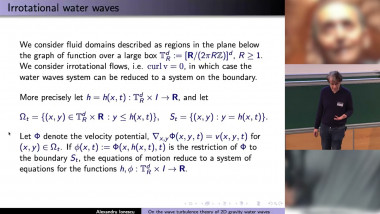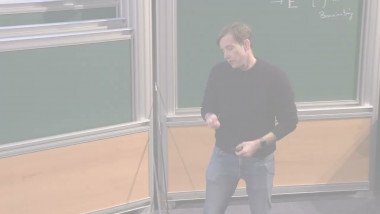
On the Wave Turbulence Theory of 2D Gravity Water Waves
By Alexandru Ionescu

Anomalous Diffusivity and Regularity for Random Incompressible Flows
By Scott Armstrong
By Victor Calo
Appears in collection : MoMaS Conference / Colloque MoMaS
We combine discrete empirical interpolation techniques, global mode decomposition methods, and local multiscale methods, such as the Generalized Multiscale Finite Element Method (GMsFEM), to reduce the computational complexity associated with nonlinear flows in highly-heterogeneous porous media. To solve the nonlinear governing equations, we employ the GMsFEM to represent the solution on a coarse grid with multiscale basis functions and apply proper orthogonal decomposition on a coarse grid. Computing the GMsFEM solution involves calculating the residual and the Jacobian on the fine grid. As such, we use local and global empirical interpolation concepts to circumvent performing these computations on the fine grid. The resulting reduced-order approach enables a significant reduction in the flow problem size while accurately capturing the behavior of fully-resolved solutions. We consider several numerical examples of nonlinear multiscale partial differential equations that are numerically integrated using fully-implicit time marching schemes to demonstrate the capability of the proposed model reduction approach to speed up simulations of nonlinear flows in high-contrast porous media.
Keywords: generalized multiscale finite element method - nonlinear PDEs - heterogeneous porous media - discrete empirical interpolation - proper orthogonal decomposition
